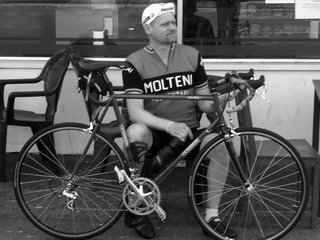It’s been a while since I’ve been here, at all. The spring term has been full of good work, but little of it has supported much in the way of reflection and writing, at least for me. A colleague at the Washington State Board for Community and Technical Colleges mailed a list serve with a review of a book titled “Defending the Community College Equity Agenda.” The review wonders about the focus of community colleges and their faculty. I find myself doing the same. The number of demands on our energy seems to draw us away of our central goals and at times from our values.
The diffuse focus and the questions about purpose have been made more clear for me because in a world literature class my students and I have been relentlessly focusing on a purpose that makes sense to me. Lately we have been reading Ernest Gaines novel A Lesson Before Dying. The process has involved thinking, with growing clarity, about what sorts of “social energy” circulates in a piece of fiction or poetry. Gaines spare prose about a tiny setting has systematically drawn us into discussions of agency and how a human finds a place in a community always already unjust. By the time we encountered the stream of consciousness journal late in the novel most of us were reading ahead, more interested in completing the narrative than in meeting assignments. We paused on the final sentence, “I was crying,” and wondered about (at least I wondered about it) how a new awareness in a final sentence causes a reader to have to rethink an entire novel.
It is the work of learning how to read with care and talking about well written sentences and chapters, that seems to me to be important. My class and I have valued it. Our work will help some of my students achieve their academic goals (the central issue in “Defending the Community College Equity Agenda”): they are better readers and writers now, have a fuller sense of the world and have shown themselves able to encounter “foreign” traditions and practices with curiosity and without judgment.
Still, I resist thinking about our work in terms of the attainment of goals. I am more interested in the growth I have seen in our ability to argue (I use that word the way that, say, Christopher Lasch did in Revolt of the Elites) about difficult texts. We have learned how to tackle the ultimate ill-formed problem (a poem by Chinese poet Duo Duo) and, without the need to establish some imperialist “correct” reading, develop satisfying responses to the problem that build more complete notions of the world, yes, but also result in what Heaney has called “undisappointed joy.” We are working out explanations of our reading experience and reflection on those explanations in an attempt to see how reading texts from China and India and Africa make the experience of living in the U.S. more intelligible, less inevitable.
I think we are making ourselves more free. As a community college teacher, I want to defend that work (by documenting it) as the aim of a community college education.
Tuesday, May 22, 2007
Subscribe to:
Posts (Atom)
